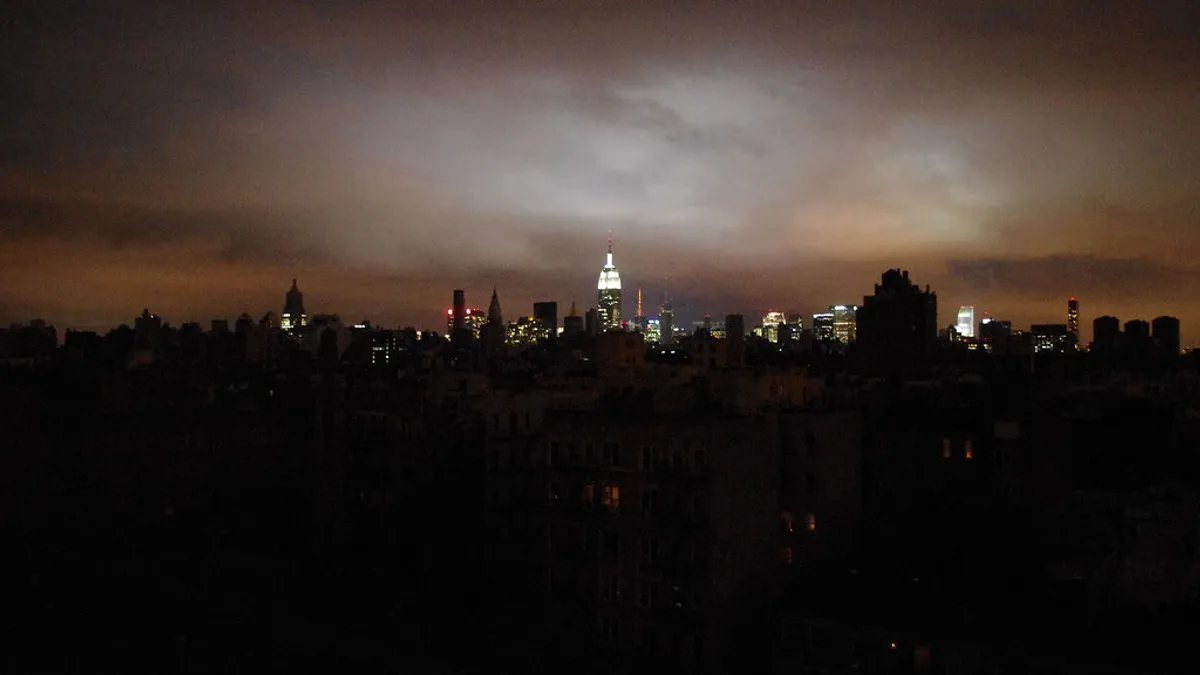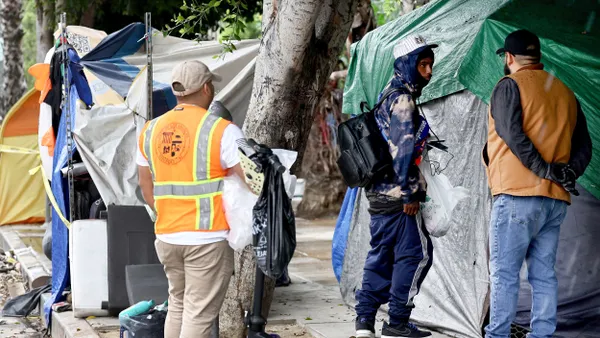Dive Brief:
- A failure at a relay protection system in Manhattan was responsible for a blackout that left as many as 72,000 New York City residents without power for about five hours on Saturday, according to a statement from utility company Consolidated Edison (ConEd).
- The outage, which started around 7 p.m. and was resolved just before midnight, was traced back to the West 65th Street substation, ConEd said. The system has been restored to its normal operating state, and ConEd is continuing to investigate why the failure occurred.
- ConEd has warned customers that, with temperatures expected to rise this week, more outages could be coming. "Those things happen during heat waves," chief spokesman Mike Clendenin said in an appearance on PIX11.
Dive Insight:
The Saturday incident coincidentally came on the anniversary of the 1977 blackout that left most of New York City without power for more than 24 hours. In the decades that have passed, New York has invested heavily in upgrading its electric grid to avoid more serious failures.
ConEd is installing some 3.6 million advanced electric meters across the city and Westchester County as part of a modernization effort, and the state has put significant resources into a more resilient grid that can withstand extreme weather and high demand.
Public officials used the blackout to put public pressure on ConEd, with Mayor Bill de Blasio saying in a press conference the city would "hold ConEd’s feet to the fire," and New York Gov. Andrew Cuomo warning "they can be replaced."
The city says that despite the length of the outage, there were no hospitalizations or injuries reported, nor were there any lootings or serious safety issues. In a statement to Smart Cities Dive, the New York Police Department (NYPD) said it deployed 400 police officers to affected areas and responded to 426 incidents, 192 of which were blackout-related. With traffic lights down, the NYPD re-routed 100 traffic agents, although reports showed that some members of the public were directing traffic.
"The successful outcome of this event was due to the City's preparedness," NYPD said in a statement. "The coordination and swift response among all of the city's emergency services allowed for the effective management, containment and resolution of what could have been a catastrophic event."
A spokesman for the Mayor’s Office of the Chief Technology Officer told Smart Cities Dive there are no reports of any smart cities infrastructure or devices being affected by the outage.
As cities expand smart technology and develop more connected infrastructure and sensors to share data, electricity reliability is also a necessity. That’s why many smart city efforts have happened in conjunction with utilities that can support energy efficiency measures and take advantage of data sharing to improve response.











